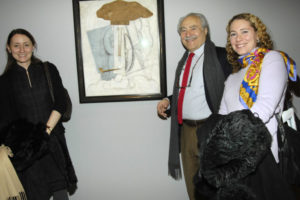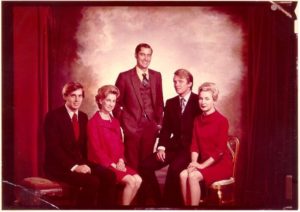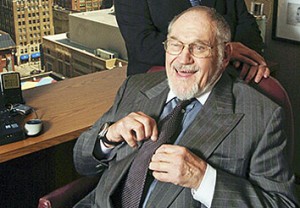
© PatrickMcMullan
Photo – Owen Hoffmann License: Fair Use/Education (from linked article)

© PatrickMcMullan
Photo – Owen Hoffmann License: Fair Use/Education (from linked article)

The New York Times just published 15,000 words about the estate and gift tax strategies President Trump’s father, Fred Trump, used to transfer his billion dollar real estate empire to his children more than 20 years ago. NYT reporters accessed public records and had others provide them confidential documents such as estate and gift tax returns. The point of the NYT piece is to disprove President Trump’s claim that he is a self-made man by claiming he received $413 million from his dad. They do not note that represents only 1/7 of his current net worth as reported today by Forbes.
A few points:
1. Even though the NYT used the terms “tax dodger,” “sham,” “dubious schemes,” and “improper,” to describe Fred Trump’s planning, the actual planning strategies he used were legitimate.
2. Fred Trump utilized valuation discounts and special trusts called GRATs to greatly reduce the gift and estate taxes owed on the transfer of his assets to his children.
3. Any impropriety on the transfers is due to the appraisal values for the real estate which seemed low in light of later sales.
4. Try as the NYT might to implicate President Trump in any impropriety, any wrong doing belongs to the person making gifts, i.e. Fred Trump, not the person receiving the gifts.
5. Am I the only one to notice that only confidential tax returns of Republicans are leaked to the press?
Photo Credit: Trump Campaign via New York Times
License: Fair Use/Education (from linked article)

Rande Gerber, husband of Cindy Crawford, recently told a TV program that George Clooney gave $1 million to 14 of his long time buddies four years ago. Clooney invited his friends to his house for dinner and presented each of them with an expensive leather suitcase.
When the friends opened them, each found $1 million in $20 bills. Clooney told them he had appreciated their friendship and wanted to help those who were struggling. He also said he had paid their taxes on the gift. Gerber did not want to take the money, but Clooney said no one would get their money if Gerber did not take his.
Several points:
1. This generosity resulted in a gift tax of $3.0 million to Clooney. In 2013, gifts to an individual in excess of $14K and beyond the $5.25 million exemption were taxed at 35%.
2. Despite his statement about paying their taxes, Clooney was obligated to pay the gift tax – the donor is always liable for the gift tax owed.
3. Having won the lottery twice – marrying Cindy Crawford and selling his Casamigos Tequila brand for $700 million – Gerber donated his million to charity to keep his good karma flowing.
Photo Credit: Reuters
License: Fair Use/Education
Stepping away from celebrities for a minute and focusing on estate laws, yesterday the IRS issued proposed regulations to minimize valuation discounts in estate planning. In a nutshell, the regulations prohibit taxpayers from dividing property between family members and then claiming their proportionate shares are not worth the exact proportion because that small proportion does not have control of the property. Wonky? Yes.
 Mel Simon owned the Indiana Pacers with his brother, Herb, for 16 years. After the Malice in the Palace in 2004, the Pacers started losing money and Simon became disenchanted with his ownership of the team. He sold his interest to his brother in a very quiet deal that was two years in the making. The terms included being released from various personal guarantees. Simon died shortly thereafter of pancreatic cancer. The IRS determined that the deal was so favorable to his brother that his estate owes a gift tax of $21 million. His widow has sued the IRS for a refund of the gift tax paid.
Mel Simon owned the Indiana Pacers with his brother, Herb, for 16 years. After the Malice in the Palace in 2004, the Pacers started losing money and Simon became disenchanted with his ownership of the team. He sold his interest to his brother in a very quiet deal that was two years in the making. The terms included being released from various personal guarantees. Simon died shortly thereafter of pancreatic cancer. The IRS determined that the deal was so favorable to his brother that his estate owes a gift tax of $21 million. His widow has sued the IRS for a refund of the gift tax paid.
Several quick points:
1. An individual may give away $5.45 million during his life before he has to start paying gift tax.
2. The gift tax rate is 40%.
3. The donor is the person responsible for paying the gift tax.
4. This deal between brothers sounds complicated. It is doubtful that one brother would intentionally give the other $83 million.
5. The widow can afford the tax bill – Simon’s estate was valued at $2 billion because of his pioneering development of shopping malls.
6. Ironic that Simon’s loss of interest in basketball ownership is tied to the Malice in the Palace. Ron Artest – the gift that keeps on giving.